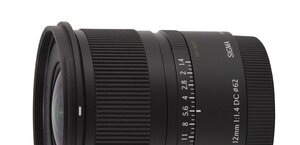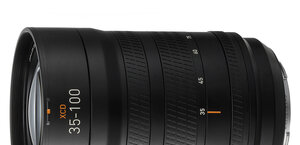Sigma A 50 mm f/1.2 DG DN
1. Introduction
With the passing time full frame sensors were becoming cheaper and cheaper, and also more popular; Sigma decided to make another strategic move and in May 2008 they launched the classic full frame standard, the Sigma 50 mm f/1.4 EX DG HSM. That lens consisted of 8 elements positioned in 6 groups and was another modification of the double gauss construction – because of its significant dimensions and an aspherical element inside the system it was able to deliver better optical qualities than previous systems of this type.
We had to wait for the next launch in this segment till a big reorganization of lines of Sigma lenses that sorted them all out into three independent series of products. In January 2014 the Sigma A 50 mm f/1.4 DG HSM was shown as a part of the Art line, with as many as 13 elements positioned in 8 groups. Its construction was different from the double gauss, and it was a huge, heavy instrument but optically excellent.
Please Support UsIf you enjoy our reviews and articles, and you want us to continue our work please, support our website by donating through PayPal. The funds are going to be used for paying our editorial team, renting servers, and equipping our testing studio; only that way we will be able to continue providing you interesting content for free. |
- - - - - - - - - - - - - - - - - - - - - - - - - - - - - - - - - - - - - - - - - - - - - - - -
At the beginning of the era of full frame mirrorless cameras that lens was adapted as a Sony FE construction by an extension with an appropriate mount. Of course it only added to its already significant dimensions and weight so Sigma was too aware to the fact that it was a temporary solution. They had to offer a model designed and dedicated to mirrorless instruments.
The launch took place in February 2023 and the Sigma A 50 mm f/1.4 DG DN was the new instrument. It was less optically complex than its reflex camera predecessor but its weight was reduced by over 150 grams.
After just two months the Sigma C 50 mm f/2 DG DN was shown. Because of its inferior aperture fastness it was also noticeably smaller and lighter but optically it proved to be a really well-put-together model.
 |
The following chart presents a comparison between basic parameters of all the lenses we mentioned in this chapter.
You are also invited to get acquainted with our test procedure, described in the article "How do we test lenses?" If you feel it’s still not enough, please go to our FAQ section where you can find some further explanation.







